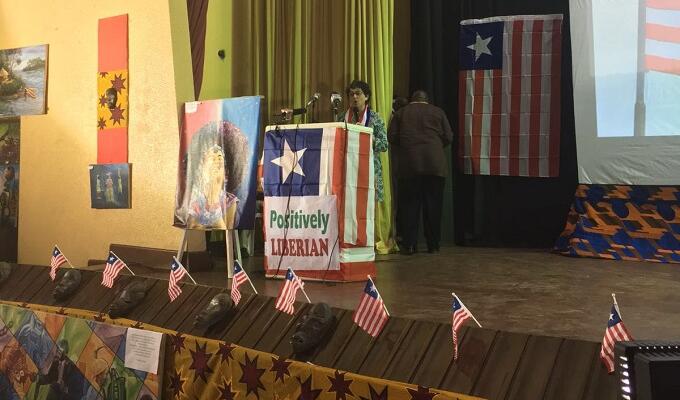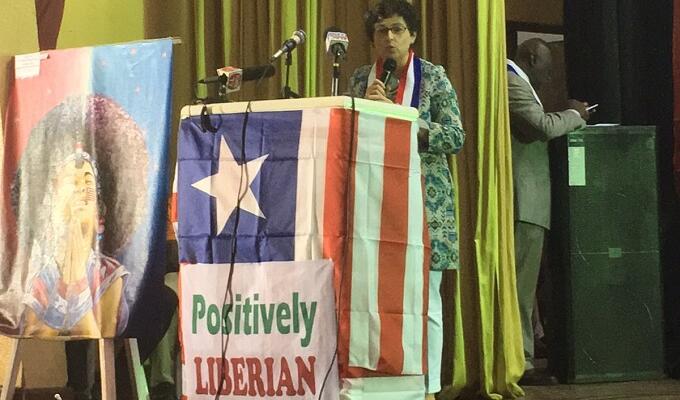

Statement by ITC Executive Director at the launch of the Liberian National Tourism Export Strategy
27 July 2016 - Monrovia, Liberia
President Ellen Johnson Sirleaf
Honourable Ministers
Ladies and Gentlemen,
It is an honour for me to be invited to launch the Liberian Tourism Export Strategy on the occasion of the 169th year of Independence of Liberia. A country which was the first African nation on the continent to gain independence from colonial powers. A country which is a legend amongst countries with its proud, innovative and resilient people and with unimaginable potential.
I must express my deep admiration of President Ellen Johnson Sirleaf for the manner in which she had led this country and the commitment she has shown to its people. She has been a strong advocate of using trade as a lever to promote development, jobs and growth in the country. She has been a trailblazer in recognising the need to invest in Liberia’s greatest asset: its people.
Her government’s support to trade-led development has delivered concrete results. Earlier this month Liberia became member of the World Trade Organization, sending a powerful signal to investors, both domestic and foreign, about your commitment to openness and market-oriented reforms. This is a powerful statement that Liberia is open for business; that Liberia wants to have that seat at the table on multilateral trade negotiations. I have been personally invested in Liberia’s journey towards WTO membership. I have seen firsthand the commitment of this government and the private sector to securing this outcome. I commend you.
ITC is honoured to have supported Liberia in its journey to WTO accession – which is very much about making trade possible. The next part of this journey for Liberia is about making trade happen.
During my visit to Liberia in April 2014 we launched the National Export Strategy providing a roadmap for the development of specific value chains. Today I see progress and the international community is increasingly ready to support you in developing fisheries, agriculture, quality and much more.
Today we take another step forward in the area of tourism services where there is great potential to tap into trade-led growth. It is about putting the framework in place to attract more tourists to Liberia to generate inclusive growth and jobs. This is what the Tourism Trade Strategy is about.
The Strategy recognizes tourism as one of the largest and fastest growing economic sectors in the world. In fact, second to South East Asia, the tourism sector is growing the fastest in Africa. In 1990 Africa welcomed about 17 million tourists and, by 2014, the number of visits increased to over 65 million. For the future - the sky is the limit.
Ladies and Gentlemen, the possibilities for micro, small and medium sized companies to engage in business linked to the tourism sector and the possibilities to create jobs for Liberian men and women are real and growing by the minute.
Rebuilding this labour-intensive tourism sector offers considerable promise for generating good jobs and supporting diversification. The Liberian government – from the Office of the President – to the Ministry of ‘Commerce and Industry’ – to the Ministries of ‘Information, Cultural Affairs and Tourism’ and ‘Youth and Sports’ – are fully aware of the socio-economic benefits that tourism has brought to other countries and have joined forces to make tourism a driver of prosperity in this country.
A key outcome of joining forces was to mobilize stakeholders in the country to agree on the best way forward, which culminated in this Strategy covering surf-based tourism; ecotourism; wildlife attractions; and cultural and heritage sites.
The Strategy outlines a road map for the development of a sector that traditionally was a significant contributor to output and employment. To that end, six key areas of activities have been identified as critical over the next five years: reviewing policies, laws and regulations; tackling infrastructure issues; training and skills building; engaging local communities; strengthening institutional capacities; and better branding and marketing of Liberia’s tourism offer.
More than 120 concrete project activities have been identified to redress bottlenecks in the development of the tourism sector. Slated to be introduced over five years, these deal with everything from tax code and visa rule changes, through to quality management in the hospitality industry, better data collection, and critical infrastructure investments like roads and rest stops on the way to places like Robertsport, Sapo National Park and Buchanan. The immigration department is already working to make it easier to get tourist visas on arrival. And I do hope that the draft bill creating Liberia National Tourism Authority will soon be adopted by the Senate.
Some of these projects focus on the policy and business environment for tourism in Liberia. One would map existing tourism sites, facilities, and support services, and make the information available via a web and app-based platform that would also point to future investment opportunities. Others would build the institutional infrastructure for tourism, such as a food sanitation regulatory framework for hotels and restaurants.
Two of the proposed projects are for pilot tourism developments in high-potential sites: a surf school in Robertsport, and community-based eco-tourism at the Kpatawee waterfalls.
Pilot projects have multiple advantages here: they enable limited resources to be focused on high-potential activities. The broader context for Liberian tourism has room to improve – affected as it is by spotty electricity poor roads as well as weak skills and branding. Fully developed pilot projects can sidestep some of these constraints – for example, by using generators for electricity whilst we build a nucleus of capable and confident tourism operators and workers. Success will serve as proof of concept, and will encourage imitation and scaling up within the broader Liberian tourism infrastructure.
Success will serve as proof of concept, and will encourage imitation and scaling up within the broader Liberian tourism infrastructure.
This is why, as we launch the Strategy today, we are already focusing on implementation. ITC and the Government of Liberia have developed a handful of ‘quick win’ projects that offer high returns over a short timeframe on modest investments. And I want to thank the Enhanced Integrated Framework (EIF) for its support to the development of this strategy. I believe this can be a good example of how EIF can provide catalytic support to improve least developed countries trade performance. Together with the Liberian government, we are mobilizing resources to kick-start these projects before year-end. I do hope some of these initiatives can materialize soon.
In conclusion, let me reiterate the International Trade Centre’s commitment to continue working with Liberia and all its partners to fully realize the potential of tourism for a more prosperous future.
Thank you



